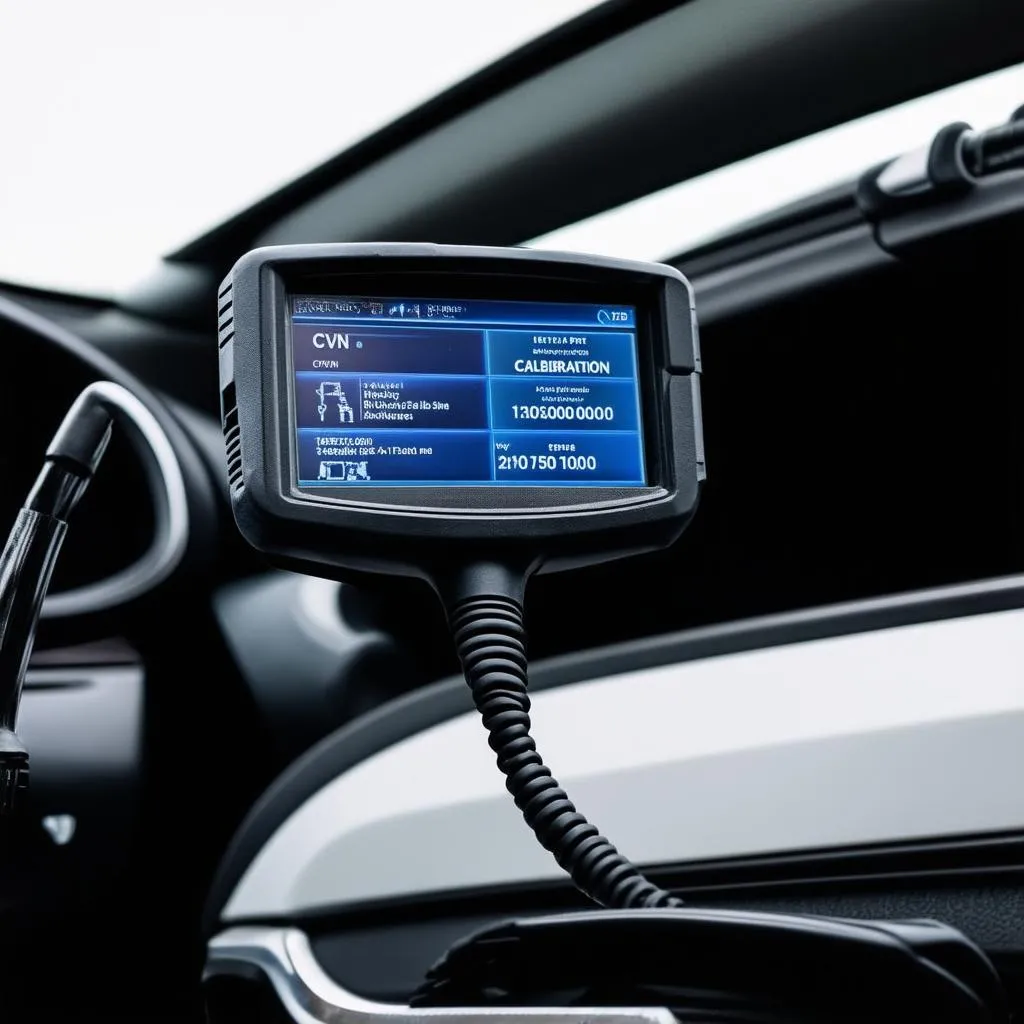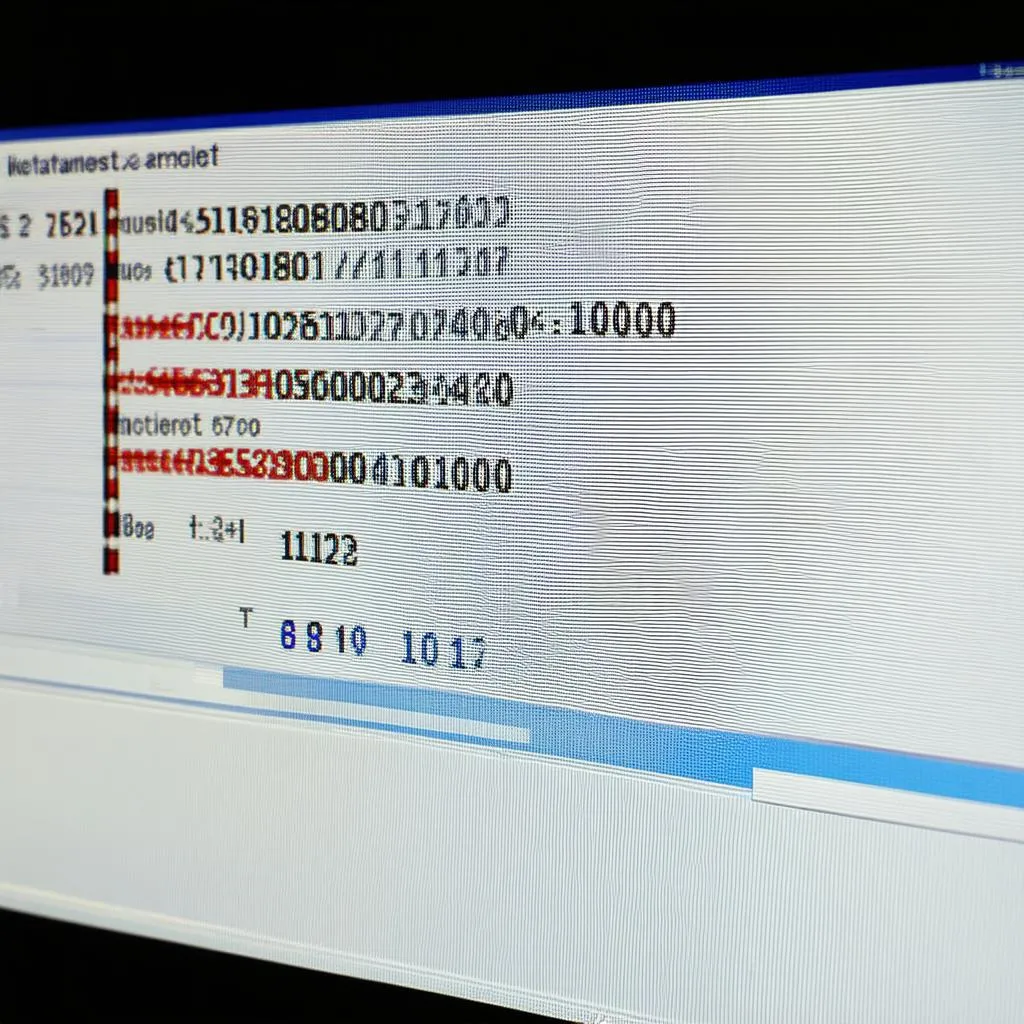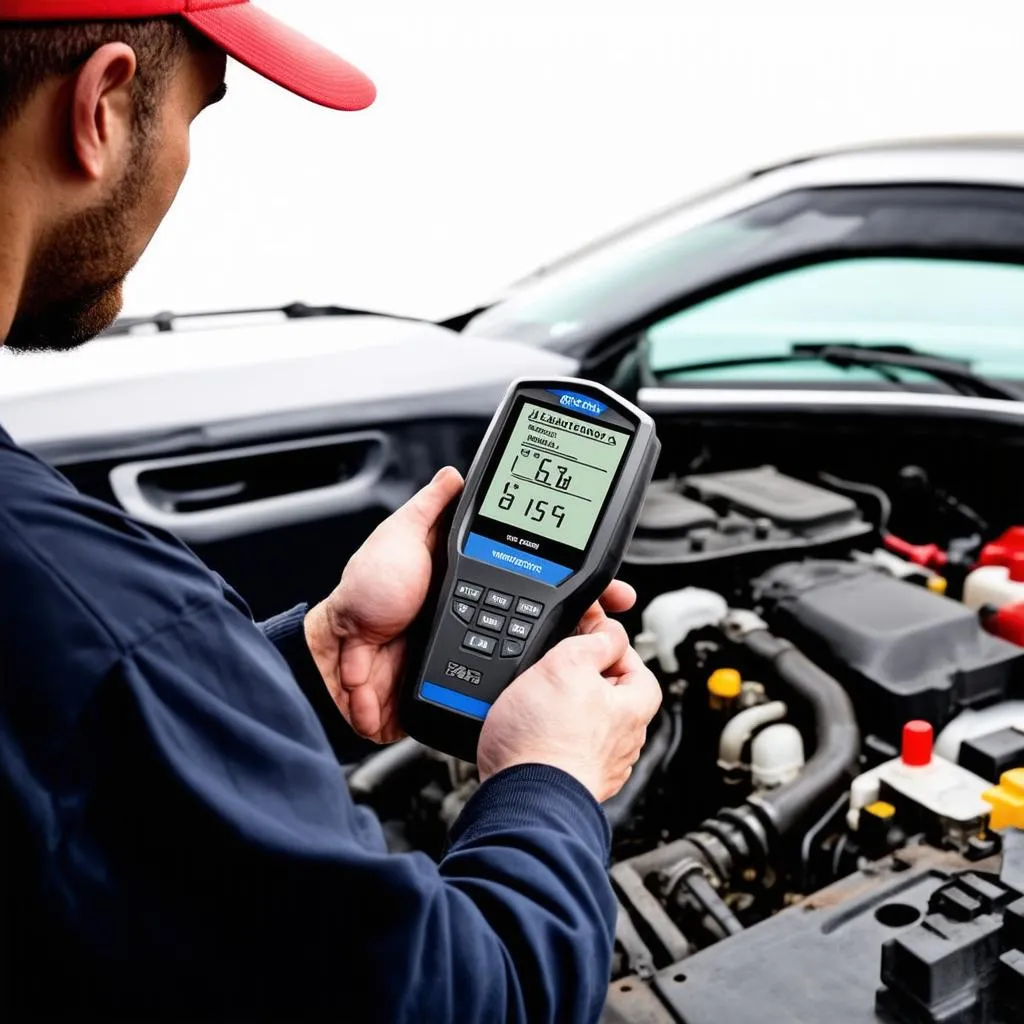Have you ever wondered what that cryptic code on your car’s OBD2 port represents? It’s like a secret language that only mechanics and automotive specialists can decipher. Today, we’ll delve into the world of calibration verification numbers (CVNs), the secrets they hold, and how they impact your vehicle’s performance.
What is a Calibration Verification Number (CVN)?
A calibration verification number (CVN) is a unique code associated with your car’s engine control module (ECM). It’s a digital fingerprint that helps identify the specific software and calibration settings installed in your car’s computer. Imagine it as a unique identification number that differentiates your car’s ECM from millions of others.
Why are Calibration Verification Numbers Important?
CVNs play a crucial role in ensuring the optimal performance and safety of your car. They act as a safeguard against unauthorized modifications and ensure that the software loaded onto your car’s ECM is legitimate. Here’s how they work:
1. Ensuring Legitimate Software Updates
Car manufacturers constantly release software updates to address bugs, improve performance, and enhance safety features. CVNs ensure that only authorized updates, validated by the manufacturer, can be loaded onto your car’s ECM. Imagine it as a digital lock that keeps your car’s software secure from unauthorized intruders.
2. Detecting Tampered ECU Software
CVNs can help detect if your car’s ECM has been tampered with. This is crucial because unauthorized modifications can affect your car’s safety, performance, and emissions. Think of it as a digital alarm system that alerts you to any potential problems with your car’s computer.
3. Preventing Performance Degradation
By ensuring that only authorized software updates are installed, CVNs prevent performance degradation and ensure that your car’s engine runs smoothly. Imagine it as a digital guardian angel that protects your car’s performance from potential threats.
How to Find Your Car’s Calibration Verification Number
Finding your car’s CVN can be done using a dedicated diagnostic tool like a Dealer Scanner, which allows access to your vehicle’s ECM. By connecting the scanner to your car’s OBD2 port, you can retrieve the CVN and other valuable data.
What to Do When You Encounter a CVN Issue
If you encounter a CVN issue, it’s best to consult a qualified mechanic or automotive specialist. They can help identify the source of the problem and recommend the appropriate course of action.
Frequently Asked Questions
Q: Why is my CVN important for my car’s performance?
A: The CVN is like a digital signature, ensuring your car’s ECM software is legitimate and optimized for your vehicle. Any unauthorized modification can lead to performance issues, potential safety hazards, and emissions problems.
Q: Can I change my CVN myself?
A: It’s highly discouraged to attempt changing your CVN yourself. This is a delicate process that should only be done by qualified technicians. Unauthorized modifications can lead to permanent damage to your car’s ECM.
Q: What does “calibration” refer to in the term “calibration verification number”?
A: Calibration refers to the process of adjusting and fine-tuning the parameters of your car’s engine control unit (ECU) to ensure optimal performance and efficiency.
Finding Answers to Your Car’s Digital Fingerprint
Understanding calibration verification numbers is essential for every car owner. It’s the key to unlocking the secrets of your car’s digital fingerprint.
Remember: If you have any concerns about your car’s CVN or need assistance with your car’s diagnostics, don’t hesitate to reach out. We are here to help.
 dealer scanner
dealer scanner
 calibration verification number
calibration verification number
 car diagnostics
car diagnostics
Contact us via WhatsApp: +84767531508 for any queries regarding calibration verification numbers or for expert assistance with your car’s diagnostics.